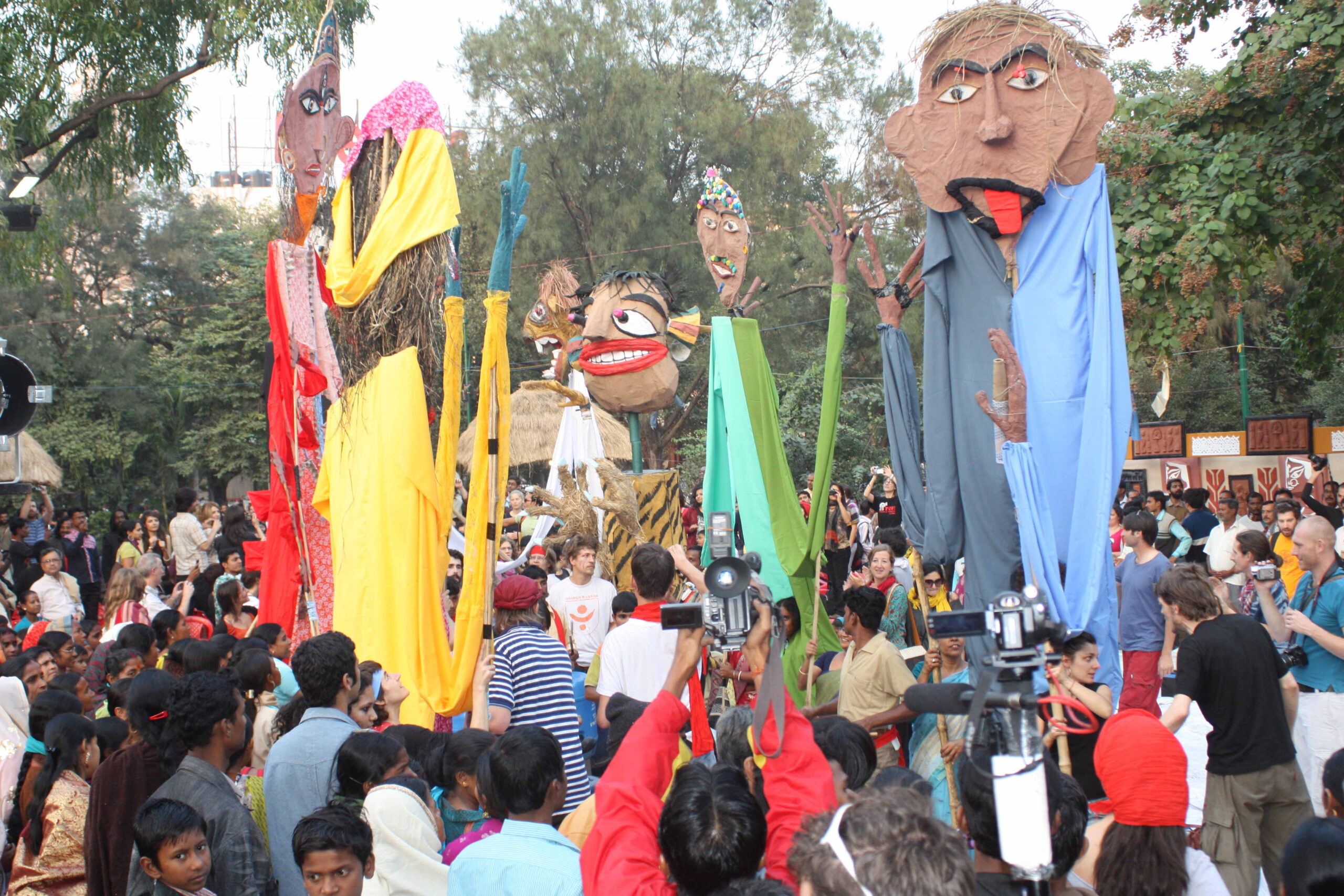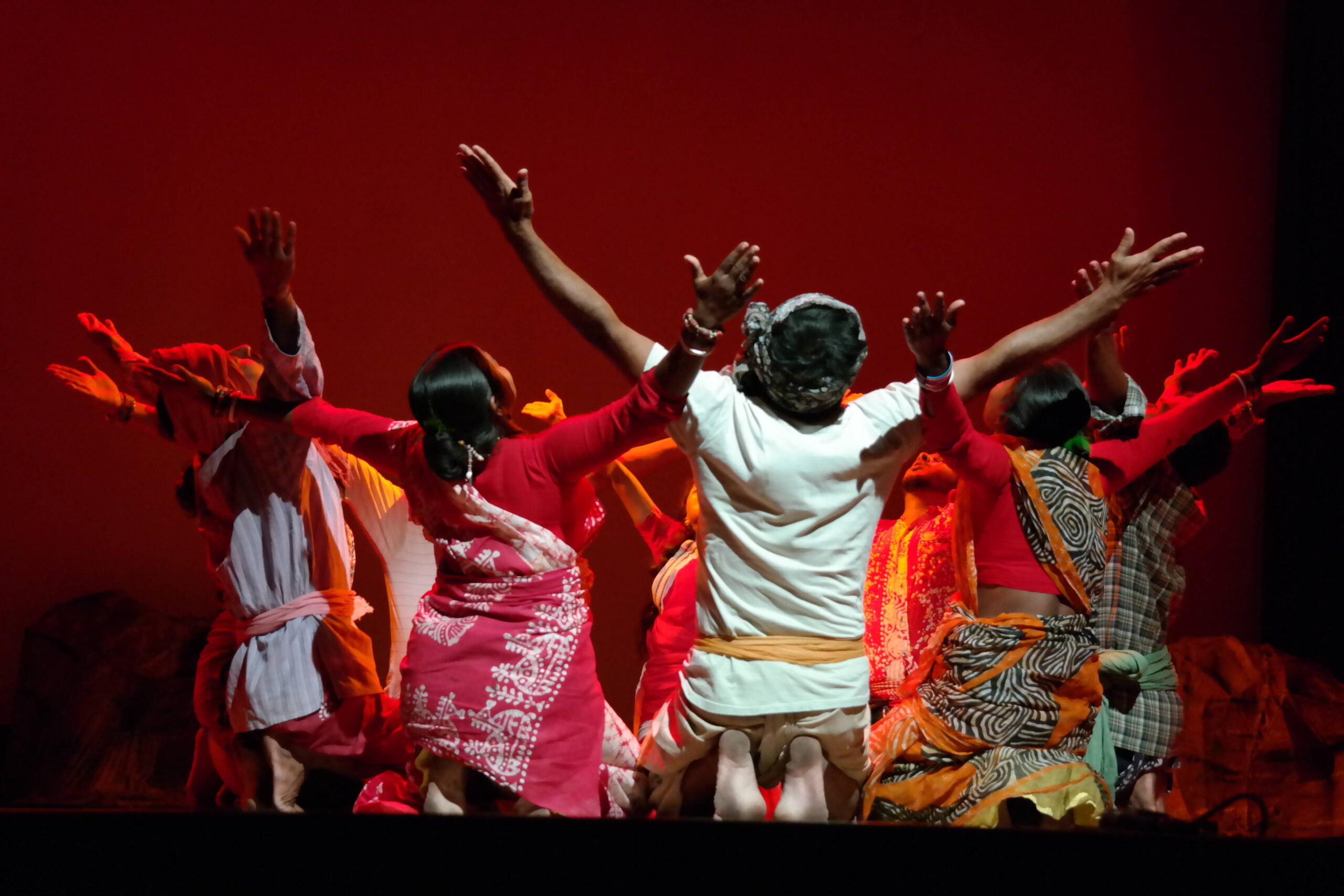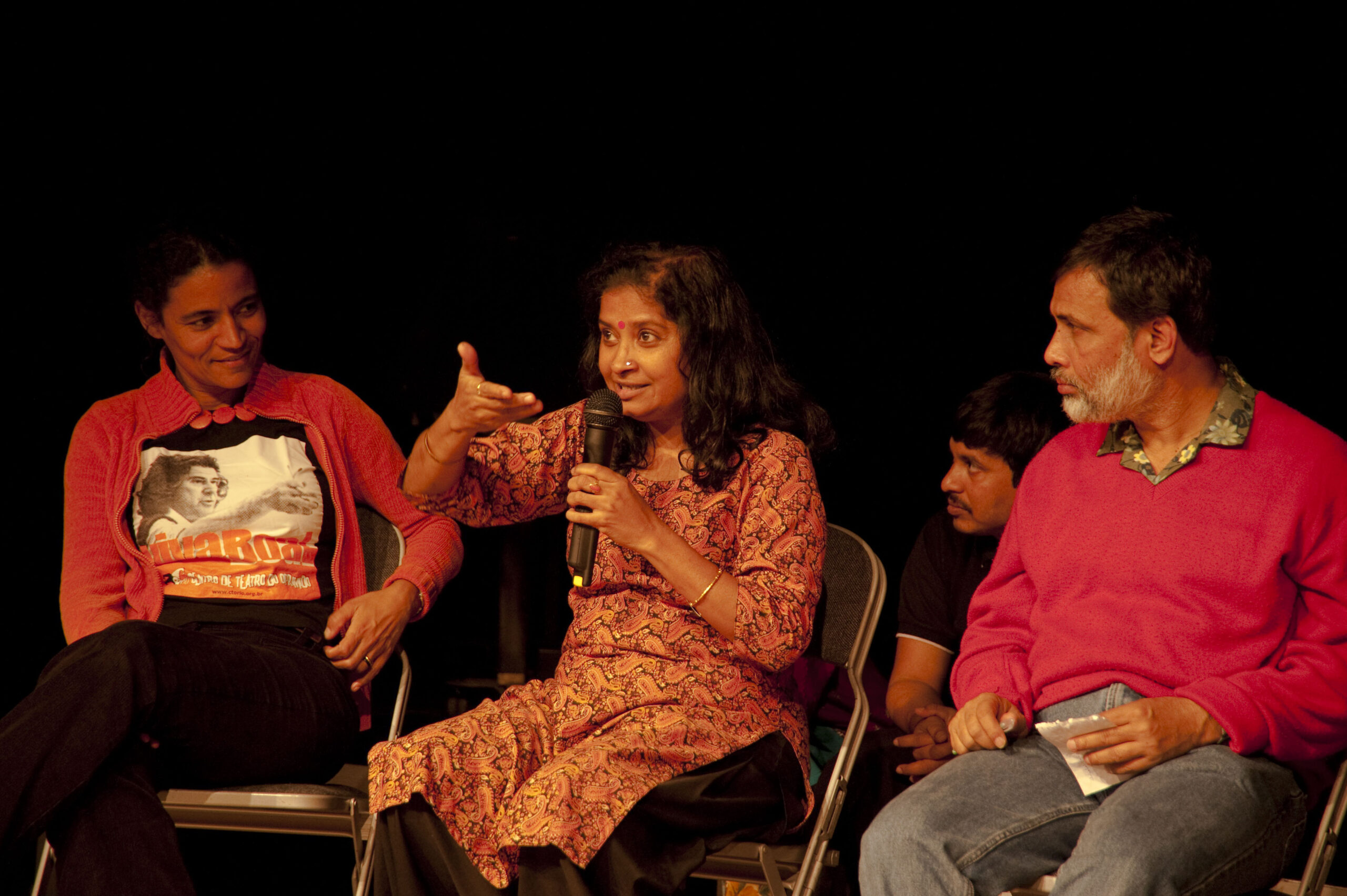


Workshop on theatre of the oppressed
Jana Sanskriti (JS) Centre for Theatre of the Oppressed (TO) was the first exponent in India. Today the centre is seen as one of the most important point of references to the global community of Theatre of the Oppressed. Theatre of the Oppressed is a school of theatre first conceptualised by Brazilian theorist and theatre practitioner Augusto Boal. In TO, the oppressed speak, act and express their social will. Jana Sanskriti ́s theatre teams reach out thousands of people every month, with aesthetically refined theatre and hard-hitting questions on the reality around us. Jana Sanskriti`s theatre does not offer any solutions – the attempt is to arrive at a solution is made with the help of the spect-actors (spectators who intervene during forumtheatre sessions). Passive spectators then become engaged spect-actors. This exercise gradually suggests possibilities for liberation from that oppression in real life. As Jana Sanskriti was founded in 1985 over the years they have seen that the experience of „spect acting“ has motivated people to be active outside theatre as well. A journey from acting to activism. „Spect-acting“ is nowadays in various parts of India a proved impact in creating a strong community of active and responsible citizens. Jana Sanskriti ́s participatory theatre has a crucial role in changing social norms.
Sanjoy Ganguly was active in Communist politics as a student. Disillusioned by its centralist tendencies, he left the party to search for a political culture of dialogue and democracy. He began working in the theatre in rural Bengal in the early 1980s. His encounter several years later with Augusto Boal and the Theatre of the Oppressed, coupled with his own passionate commitment to the creation of a more just and equal society, led him to found Jana Sanskriti(JS), an independent organization committed to the use of theatre to conscientise and empower the communities it serves. With more than thirty active theatre teams (of which 9 are all women teams) associated with the group, Jana Sanskriti is now the largest organization of its kind in India.
Ganguly’s theatre philosophy is founded on the fact that every individual is essentially intellectual and most often that is not manifested. He believes theatre can manifest that faculty, scripting intellectual power on stage which breaks the passivity and transforms spectators into ‘Spect-activists’.
He has refused to adopt partisan political positions and has initiated and supported community action throughout his journey.
JS has an outstanding record of work with women and children, and have already been successful in helping people across a large area. As a result of their work over more than 30 years, citizens in many areas have formed local committees to identify needs (educational, economic, social eg: provision of resource, tacking illegal alcohol production, supporting land-rights negotiation and so on) and have been able to deliver marked improvements in these domains.
Using performance methodology has enabled JS to work across borders of age, gender, caste and religion, incorporating people from all categories. JS has also successfully made house wives in rural Bengal – actors and activists. JS with her aesthetically structured plays operates among nearly 200,000 people through 30 satellite teams opening the door of the world of intellect to people living in margin. Ganguly’s use of theatre beyond a problem solving session to develop critical understanding on issues affecting the lives of the people is a more clarifying approach to make theatre as activism.
In Purulia, among tribal and under privileged, Jana Sanskriti has been addressing child marriage and child trafficking through Forum plays working in conjunction with schools, social services and the police, and involving active co-operation from local communities.
Key accomplishments and impact of the work
Sanjoy’s work and dedication to his goals over a very long period testify to his strength of vision and the practical ability to deliver it. His company’s ethos is strongly egalitarian and organization and practice are shared endeavors which value the co-creativity of all participants and enable them to recognize and develop their own artistic and intellectual capacities. The quality of the theatrical work is high, incorporating a rich, imaginative and evocative mix of indigenous forms (e.g. dance and music) and a rigorous focus on actual practical issues affecting the daily lives of performers and spectators. He is a thorough, sensitive and responsive trainer of performers who elicits great support and loyalty from those he works with. He has displayed extreme resolution, courage and astuteness in negotiating extremely tricky political and social contexts and pursuing the goal of getting communities to take responsibility for their own processes and to find ways of making change happen. He has had to develop the skills of being a theatre maker and trainer (with no previous formal training), an activist, a community worker, an educator, a negotiator and an inspiring leader.
His personal life-style remains extremely simple; he has acquired none of the trappings which compromise many.